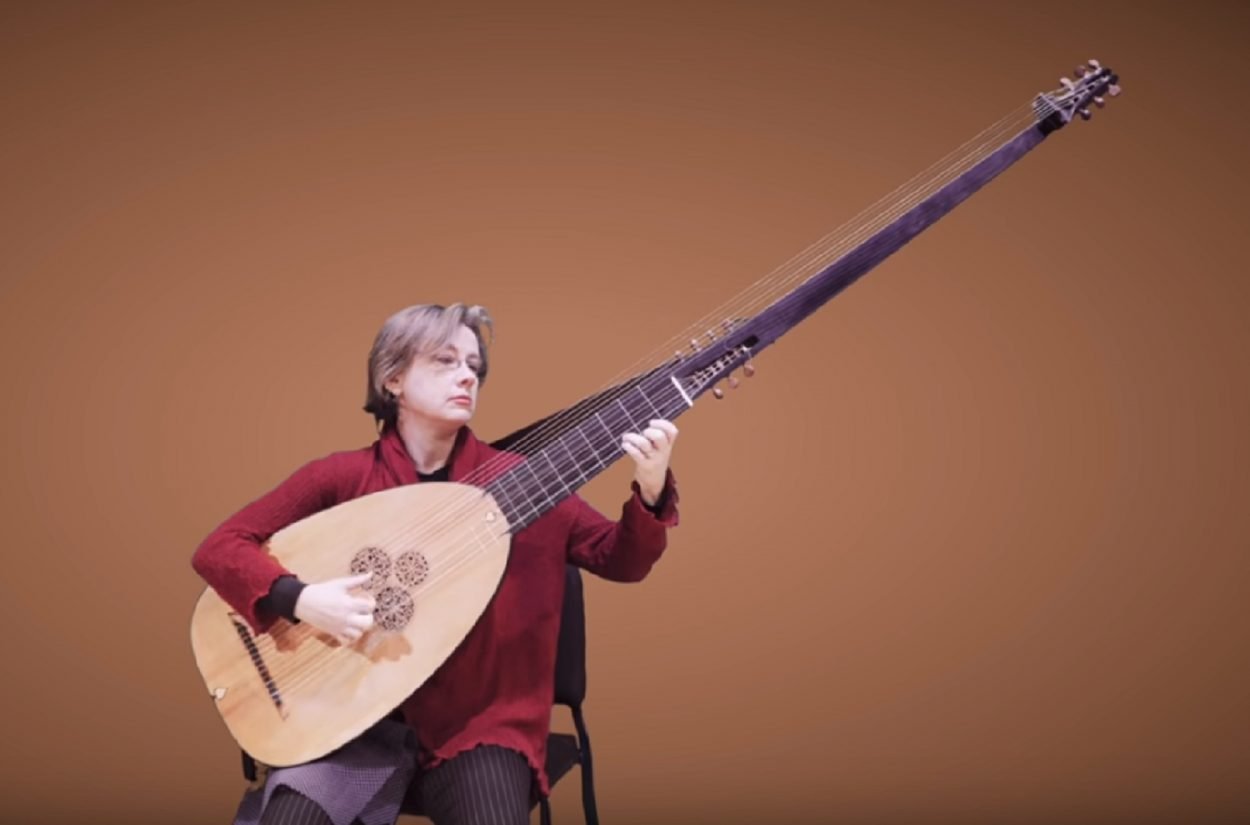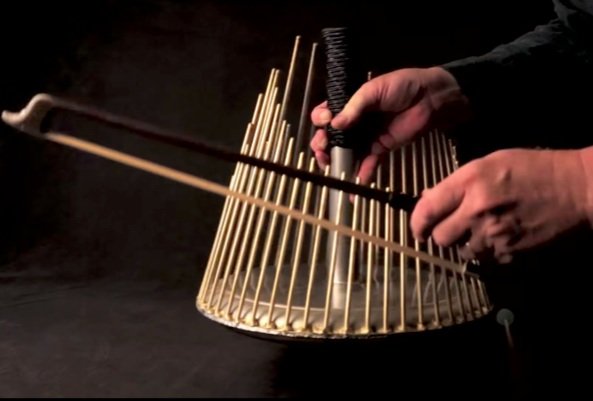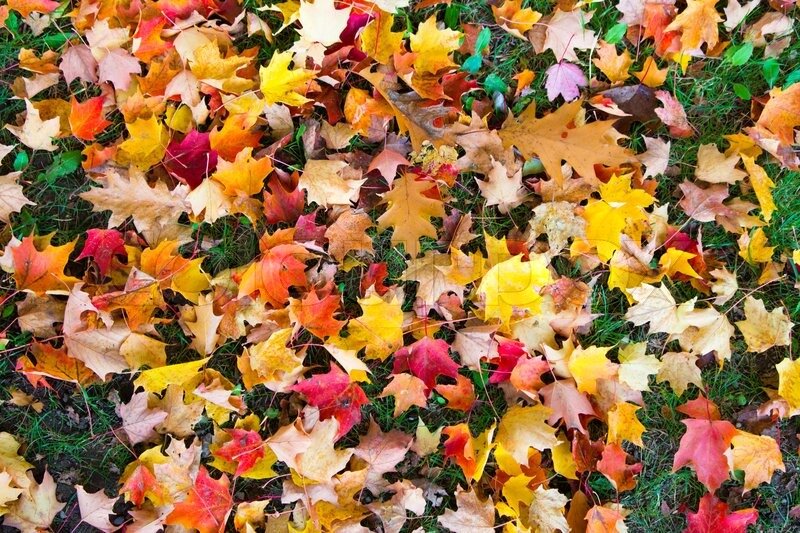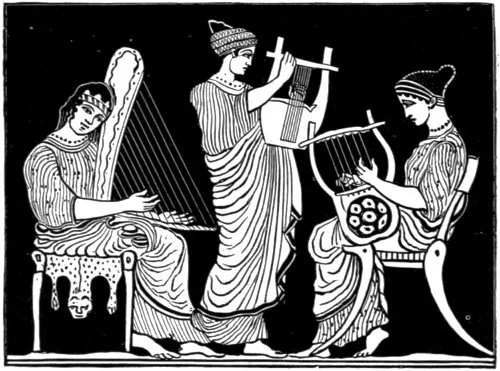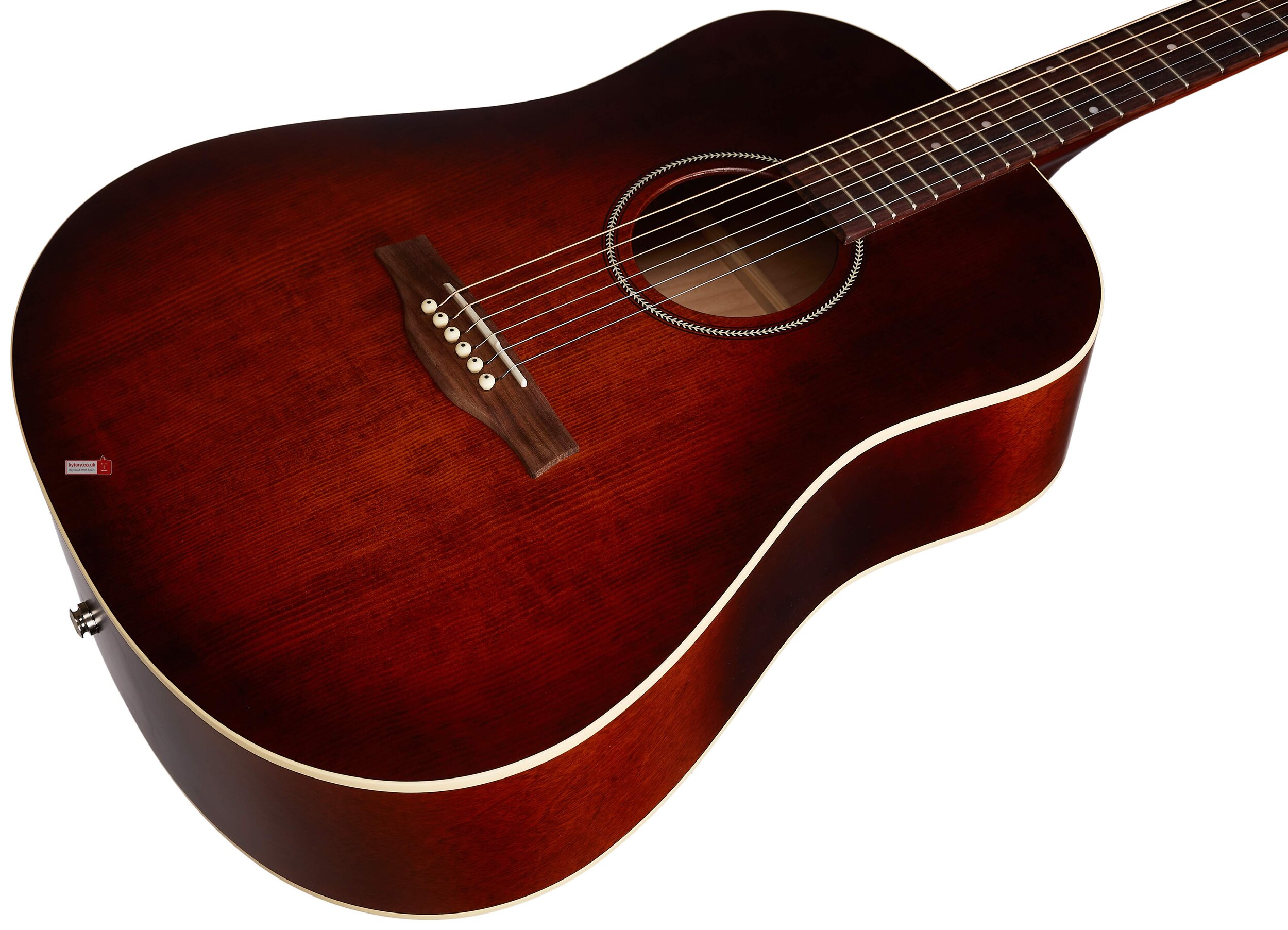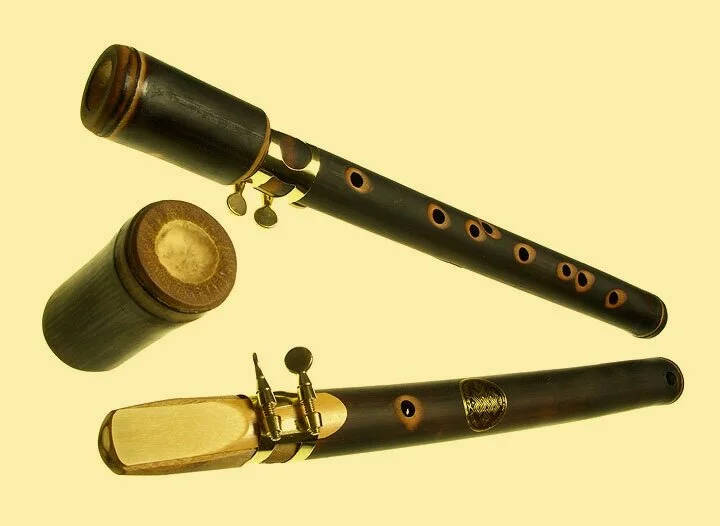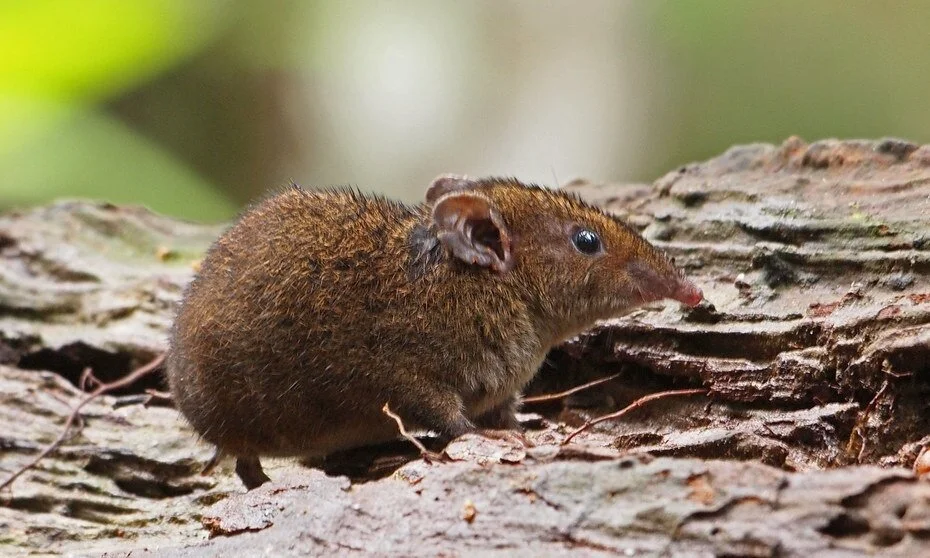Word of the week: Designed to emanate the music of the spheres, for opera, and also allow improvisation, this Baroque-era member of the lute family has has a hugely extended neck, second pegbox, large volume with ornate sound holes, and wide range with harmonic options
Read moreWord of the week: theorbo
Necking it: the baroque theorbo, known to some as the giraffe of the lute world

